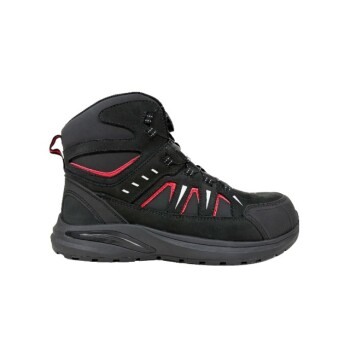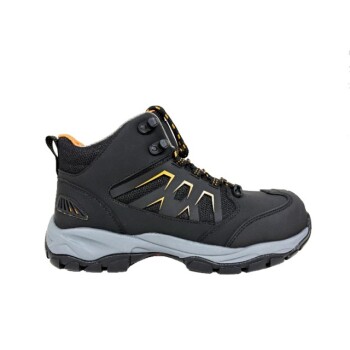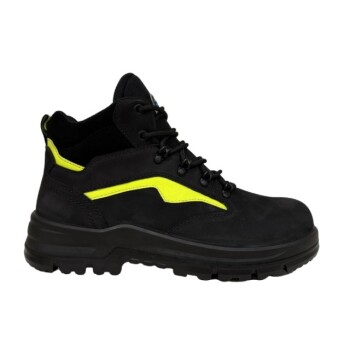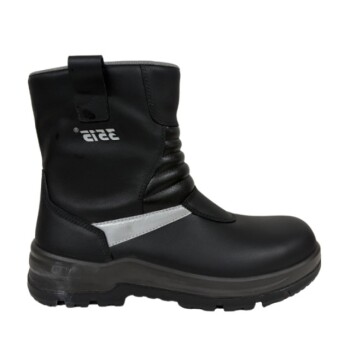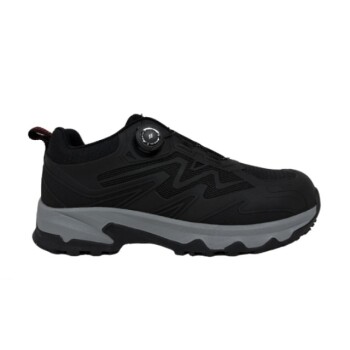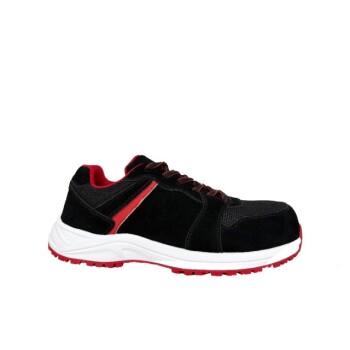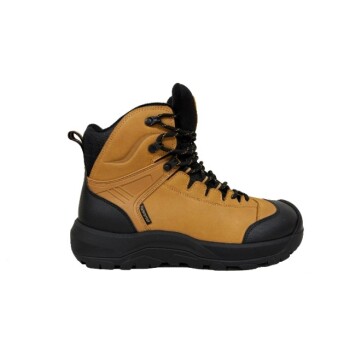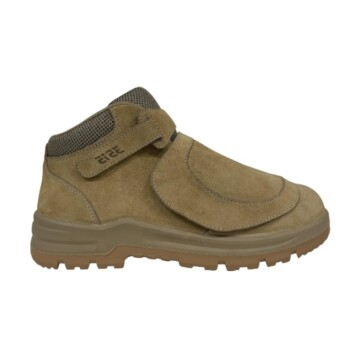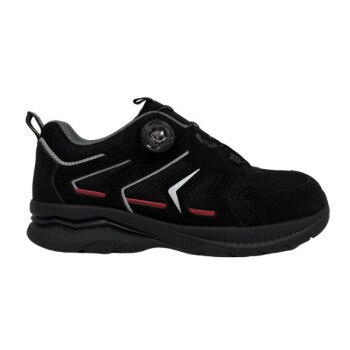The shank is the structural backbone of your work boot. Located between the insole and the outsole, this component preserves the shape of the boot and supports your arch. Steel shanks remain the industry standard for maximum durability and puncture resistance, though they are significantly heavier. Composite shanks—made from nylon, fiberglass, TPU, or carbon fiber—provide a lighter, more flexible alternative ideal for dynamic work environments.
The choice between steel and composite shanks is fundamentally a trade-off between absolute rigidity and lightweight comfort. While steel offers uncompromised support for static or heavy-duty tasks, composite materials are superior for reducing fatigue during high-activity jobs.
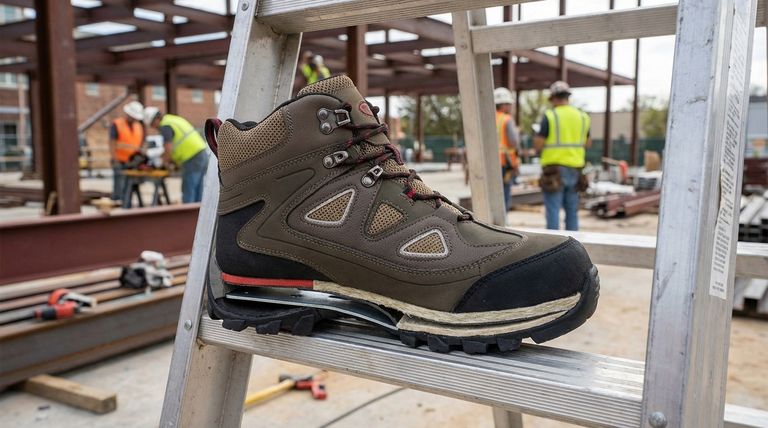
The Role of the Shank
Why Stiffness Matters
A shank prevents the boot from twisting or bending incorrectly.
By stiffening the outsole, it distributes your weight evenly across the foot. This prevents the boot from collapsing under the arch, which helps mitigate long-term foot issues like plantar fasciitis.
Load Distribution
Without a rigid shank, your foot muscles must work harder to maintain balance.
This is critical when standing on narrow surfaces, such as ladder rungs. The shank takes the load, sparing your arch from excessive strain.
Steel Shanks: The Heavy-Duty Standard
Maximum Durability
Steel is the strongest material used in footwear construction.
It offers the highest level of stiffness and shape retention. For workers who climb telephone poles or spend hours on ladders, steel is often the only material rigid enough to prevent the boot from bowing around the rung.
Puncture Protection
Steel shanks often double as puncture-resistant plates.
In construction or demolition environments where stepping on nails is a risk, the density of steel provides a physical barrier that softer composites cannot always match.
Composite and Nylon Shanks: The Modern Approach
Reducing Weight
Composite shanks are significantly lighter than their steel counterparts.
Materials like nylon, fiberglass, and carbon fiber reduce the overall weight of the boot. Over the course of a 10-hour shift, this weight reduction translates to less energy expenditure and reduced leg fatigue.
Temperature Management
Unlike steel, composite materials are poor conductors of heat and cold.
In extreme weather conditions, a steel shank can conduct freezing temperatures through the sole to your foot. Composite shanks remain temperature-neutral, keeping your feet warmer in winter environments.
Security and Sensitivity
Composite materials are non-metallic.
If your job requires passing through metal detectors—such as in airport security or government facilities—fiberglass or TPU shanks allow you to pass through without removing your boots.
Understanding the Trade-offs
Rigidity vs. Flexibility
Steel does not flex; it holds its shape under immense pressure.
While this is great for protection, it can feel restrictive if your job involves a lot of crouching, kneeling, or running. Nylon and TPU shanks offer more flex, allowing for a more natural gait cycle while walking.
Durability Over Time
Steel will retain its shape almost indefinitely.
Composite materials, particularly nylon, may eventually deform or soften after years of heavy abuse. If longevity is your primary metric and weight is not an issue, steel remains superior.
Making the Right Choice for Your Goal
To select the correct shank, you must analyze your daily range of motion and environmental hazards.
- If your primary focus is heavy construction or ladder work: Choose steel shanks for maximum arch support and to prevent the sole from flexing over rungs.
- If your primary focus is walking distance or agility: Choose composite or nylon shanks to minimize boot weight and reduce overall muscle fatigue.
- If your primary focus is security clearance or cold weather: Choose fiberglass or carbon fiber shanks to avoid metal detectors and prevent thermal conductivity.
Your boots are tools; choose the shank that supports the specific mechanics of your trade.
Summary Table:
| Shank Material | Key Features | Best For |
|---|---|---|
| Steel | Maximum durability, puncture resistance, rigid support | Heavy construction, ladder work, static tasks |
| Composite (Nylon, Fiberglass, TPU) | Lightweight, flexible, temperature-neutral, non-metallic | Walking, dynamic jobs, security clearance, cold weather |
| Carbon Fiber | Extremely lightweight and rigid, high performance | High-activity jobs requiring a balance of support and agility |
Need work boots built for your specific job demands?
As a large-scale manufacturer, 3515 produces a comprehensive range of footwear for distributors, brand owners, and bulk clients. Our production capabilities encompass all types of safety and work boots, ensuring you get the perfect shank technology for durability, comfort, and performance.
Contact our experts today to discuss your requirements and get the right support for your workforce.
Visual Guide
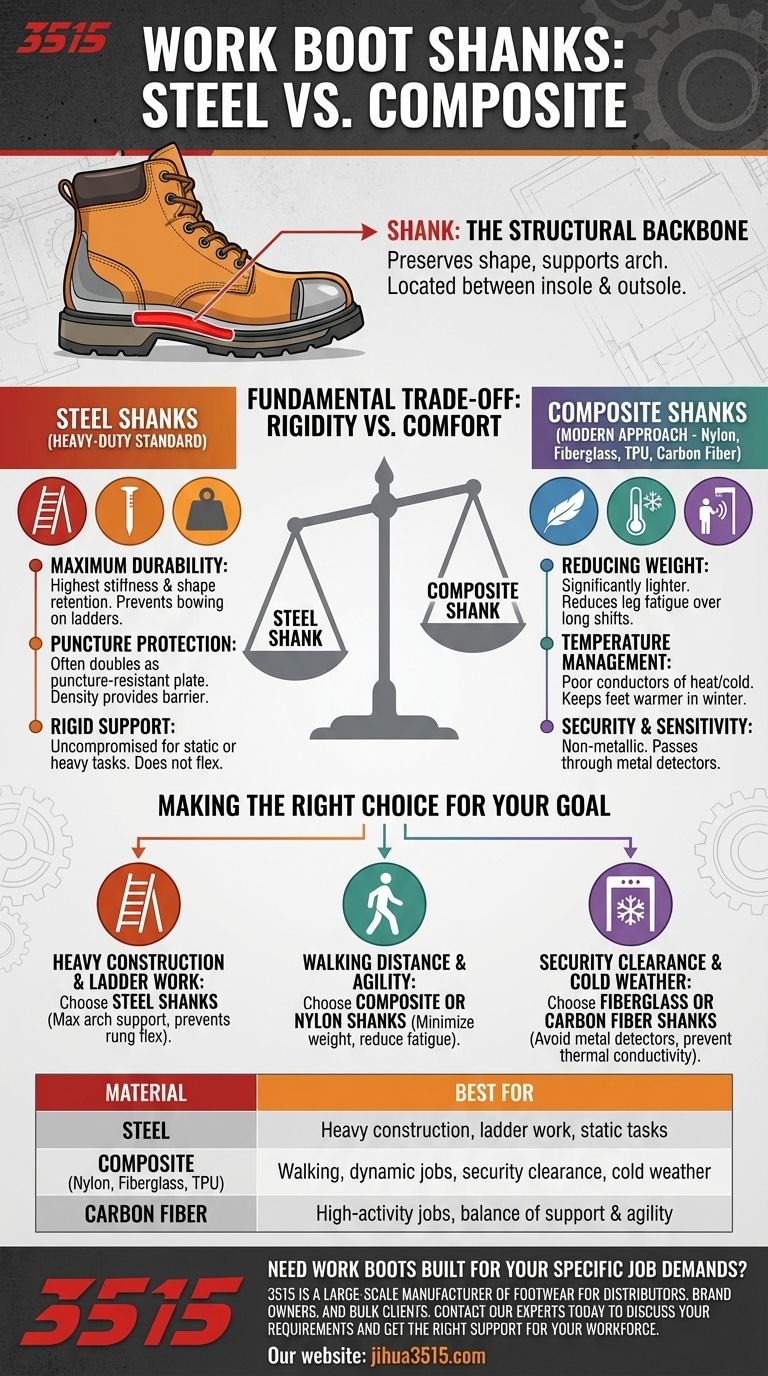
Related Products
- Safety Footwear Wholesale Manufacturer for Custom OEM/ODM Production
- Wholesale Durable 6-Inch Work Boots | Custom & Private Label Manufacturer
- Heavy Duty Nubuck Safety Boots Safety Shoes for Global Distribution
- Premium Sport Style Safety Boots for Bulk Orders
- Wholesale Safety Footwear Manufacturer for Bulk & Custom OEM Orders
People Also Ask
- Why is it important to care for farm boots? Protect Your Investment and Safety on the Job
- What is the most secure boot lacing technique? Achieve a Locked-in Fit with Lock Lacing
- Why is heat-resistant protective footwear required for high-temp construction? Essential Safety for Steam Pipe Ops
- Why is durability important in work boots, and how do cowboy boots meet this need?
- How does Goodyear welt construction differ from other boot construction methods? A Guide to Durability & Repairability
- Why choose Goodyear welt work boots? Superior Durability & Long-Term Value Explained
- What are the three main types of work boot construction? Choose the Right Boot for Your Job
- How do Western-style work boots protect the feet? A Complete Guide to Industrial Foot Safety


